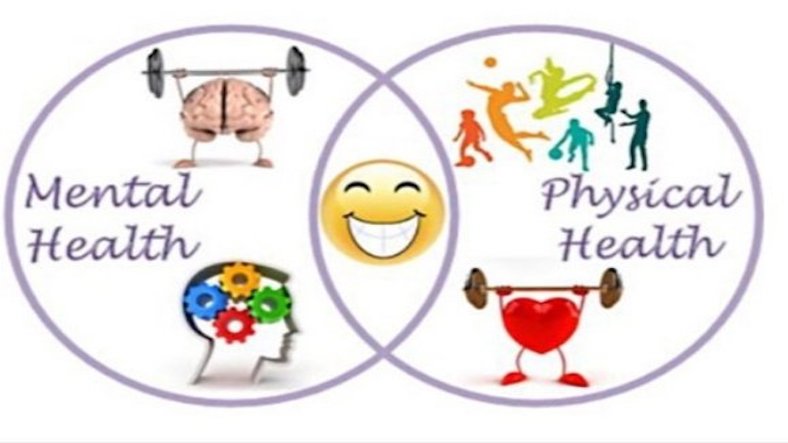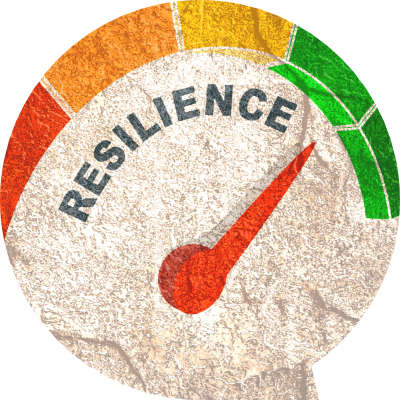Mental health and physical health are two sides of the same coin. Often, we think of them as separate, but the reality is that they are closely intertwined. What happens in your mind can manifest in your body, and vice versa. If you’ve ever felt physically tired after a stressful day or mentally foggy after a sleepless night, you’ve experienced the connection firsthand. This intricate relationship highlights the importance of adopting a holistic approach to well-being. Mindfulness and stress management play a crucial role in maintaining this balance, helping both body and mind function in harmony.
Table of Contents
The Mind-Body (Mental Health and Physical Health) Connection

The mind-body connection refers to the profound relationship between our thoughts, feelings, and physical state. Our mental health can directly affect our physical well-being, and poor physical health can lead to mental health challenges. For instance, chronic stress can lead to physical conditions such as high blood pressure, while chronic illnesses like diabetes can trigger anxiety or depression.
How Mental Health Affects Physical Health
Mental health conditions like stress, anxiety, and depression can take a toll on your body. Stress hormones, such as cortisol, can lead to inflammation, weaken the immune system, and disrupt digestion. On the flip side, when you’re mentally at peace, your body tends to function optimally. Feeling calm and balanced can improve your heart health, immune response, and energy levels.
How Physical Health Influences Mental Well-Being
Regular exercise, a healthy diet, and sufficient sleep are key factors that support mental health. Physical health problems, such as chronic pain or poor fitness, can negatively impact your mood, contributing to feelings of sadness, frustration, or even depression. Keeping your body healthy is essential to maintaining a positive mental outlook.
How Mental Health Impacts Physical Health
Mental health issues like stress, anxiety, and depression don’t just stay in your head—they affect your entire body. Let’s look at some specific ways these conditions manifest physically.
Chronic Stress and Physical Health
Chronic stress is one of the biggest contributors to physical illness. When your body is in a constant state of stress, it releases hormones like adrenaline and cortisol, which are beneficial in small doses but harmful when sustained over time.
- Cardiovascular issues: Prolonged stress increases blood pressure and raises the risk of heart disease.
- Weakened immune system: Stress can impair your immune response, making you more susceptible to illnesses.
- Digestive problems: Conditions like irritable bowel syndrome (IBS) are often linked to chronic stress.
Depression and Physical Health
Depression not only affects your mood but can lead to physical symptoms as well.
- Fatigue: Depression often drains your energy, leaving you feeling constantly tired, regardless of how much rest you get.
- Heart disease: People with depression are at a higher risk of developing heart conditions.
- Physical pain: Symptoms like headaches, muscle aches, and digestive issues are common in those with depression.

How Physical Health Affects Mental Well-Being

Your body and brain are intricately connected, and your physical habits have a profound effect on your mental state. Engaging in regular exercise, eating a nutritious diet, and prioritizing sleep can have a transformative effect on mental health.
Exercise and Its Mental Health Benefits
Exercise is not just good for your body; it’s a natural mood booster. Physical activity stimulates the release of endorphins, the body’s natural “feel-good” chemicals, which help reduce feelings of stress and anxiety.
- Boosts mood: A quick workout can elevate your mood and increase feelings of happiness.
- Reduces symptoms of depression and anxiety: Regular exercise has been shown to reduce the symptoms of mental health disorders.
- Enhances cognitive function: Physical activity improves brain function, helping with memory, focus, and decision-making.
Nutrition and Mental Health
The saying “You are what you eat” holds a lot of truth when it comes to mental well-being. A diet rich in fruits, vegetables, lean proteins, and healthy fats fuels your brain and supports emotional health.
- Brain function: Nutrient-dense foods improve cognitive function and can enhance your mood.
- Stress reduction: Foods rich in Omega-3 fatty acids, like salmon and walnuts, can reduce symptoms of anxiety and stress.
- Processed foods: Diets high in sugar and processed foods have been linked to mood disorders such as depression.
The Importance of Sleep for Mental Health
Poor sleep can have a dramatic effect on mental health. Insufficient sleep increases stress, impairs concentration, and heightens emotions, leaving you more prone to anxiety or depressive episodes.
- Stress and anxiety: Lack of sleep contributes to elevated stress levels and worsens anxiety.
- Mental clarity: Sleep is essential for cognitive functions like memory, problem-solving, and emotional regulation.
- Improving sleep quality: Establishing a regular sleep routine and minimizing screen time before bed can help improve your sleep, boosting your mental resilience.
The Role of Mindfulness in Managing Mental and Physical Health
Mindfulness is the practice of staying present and fully engaging with the current moment without judgment. This technique is a powerful tool for managing both mental and physical health, as it encourages relaxation and emotional balance.

What is Mindfulness?
Mindfulness involves being aware of your thoughts, feelings, and physical sensations in the present moment. It is about focusing on now, rather than being caught up in past regrets or future anxieties.
Mindfulness and Stress Management
Practicing mindfulness reduces stress by encouraging you to let go of tension and focus on the present.
- Lowering cortisol levels: Mindfulness practices like meditation can reduce the body’s stress hormone, cortisol.
- Techniques to practice: Techniques like mindful breathing, body scanning, and mindful walking can be easily incorporated into daily routines to reduce stress.
- Overall well-being: Studies have shown that regular mindfulness practice leads to greater emotional regulation and reduced symptoms of anxiety and depression.
Mindfulness and Emotional Regulation
Mindfulness helps increase awareness of your emotions, allowing you to respond thoughtfully










